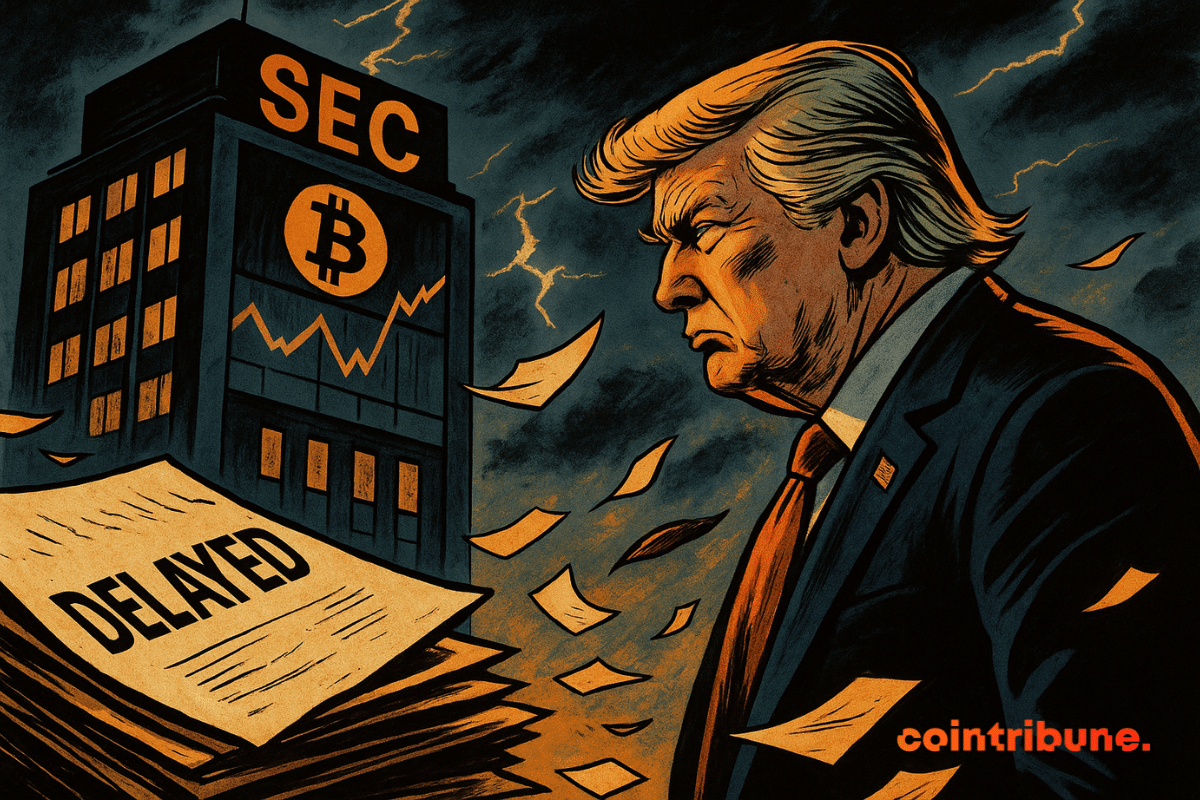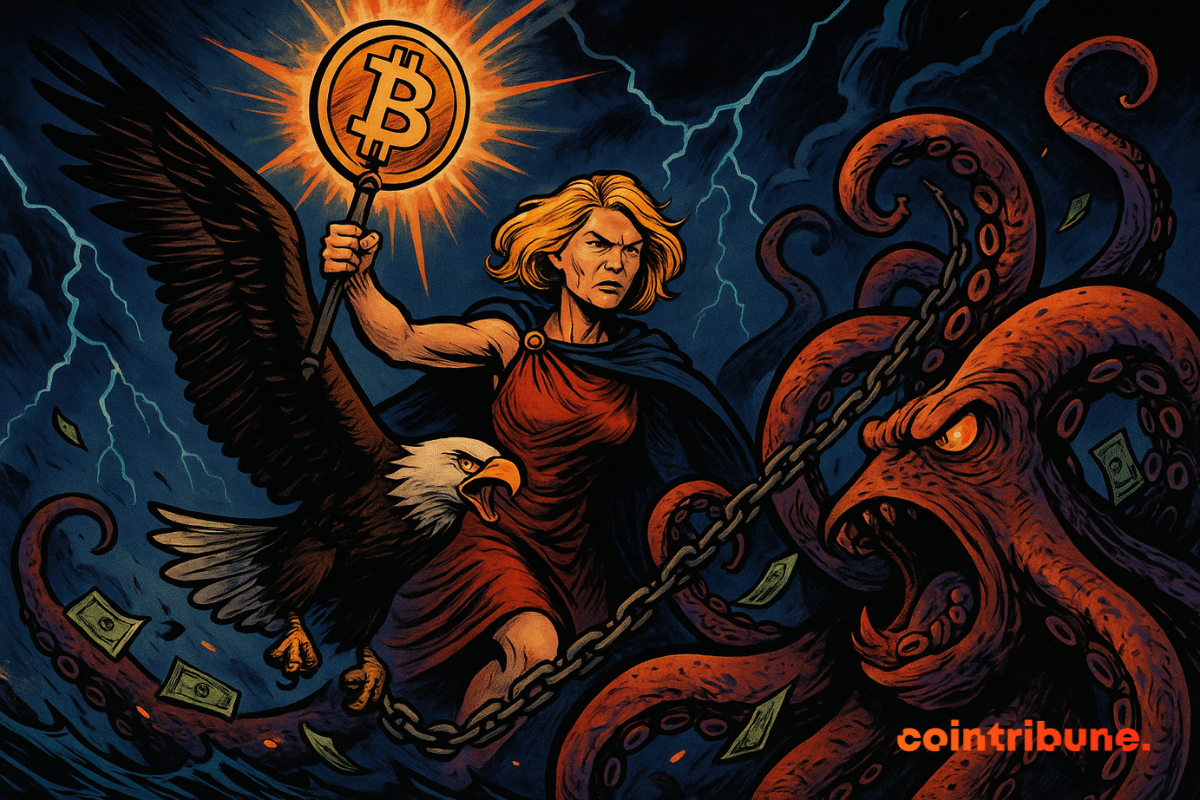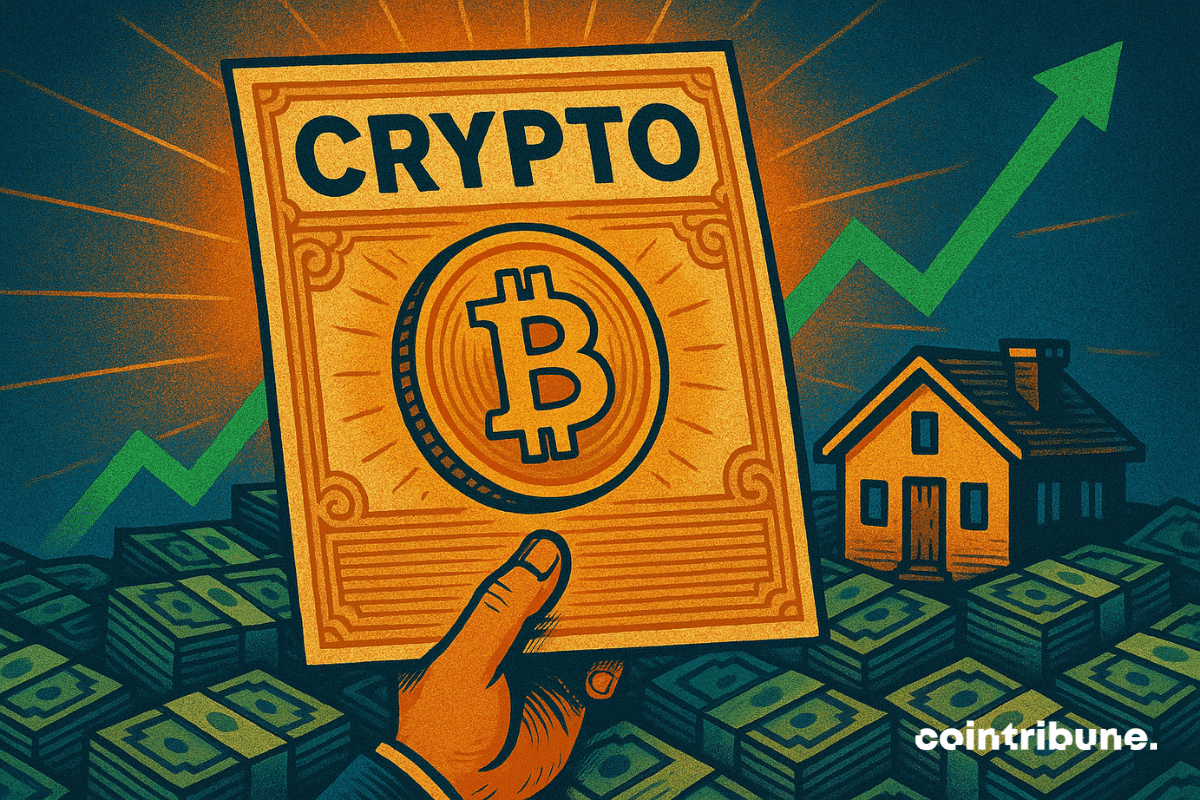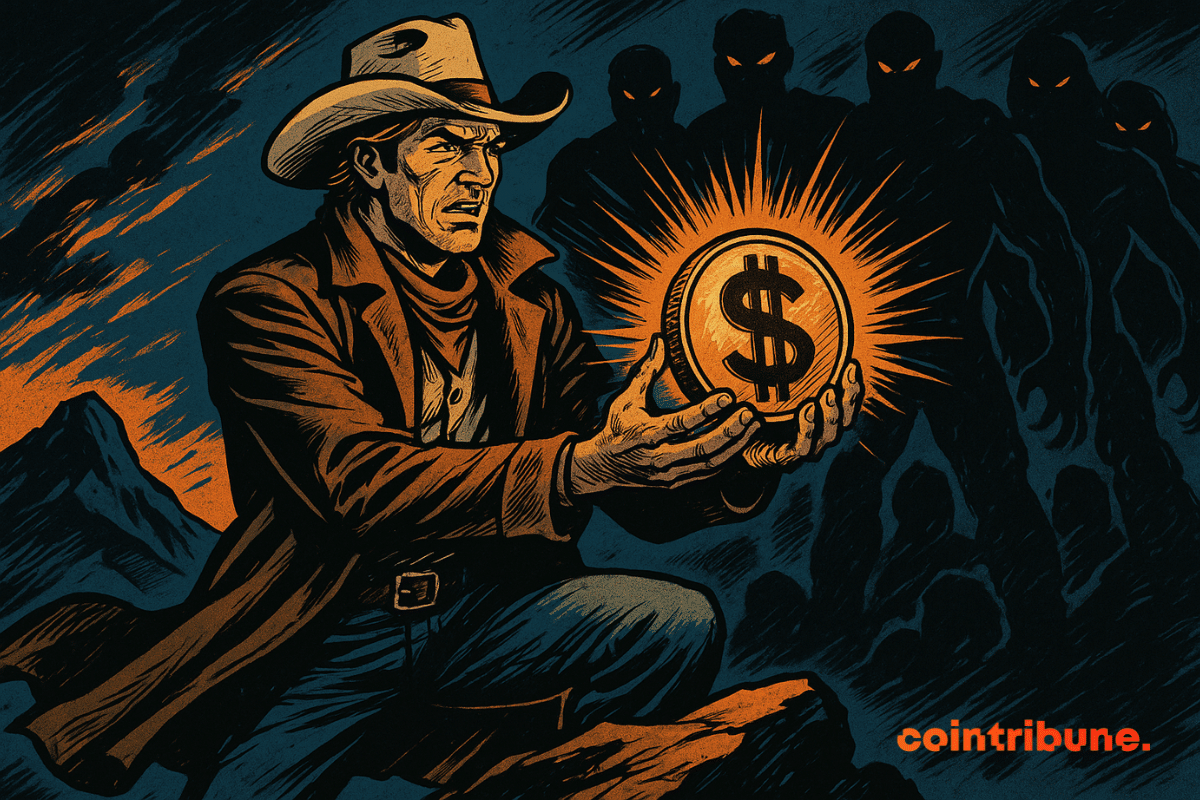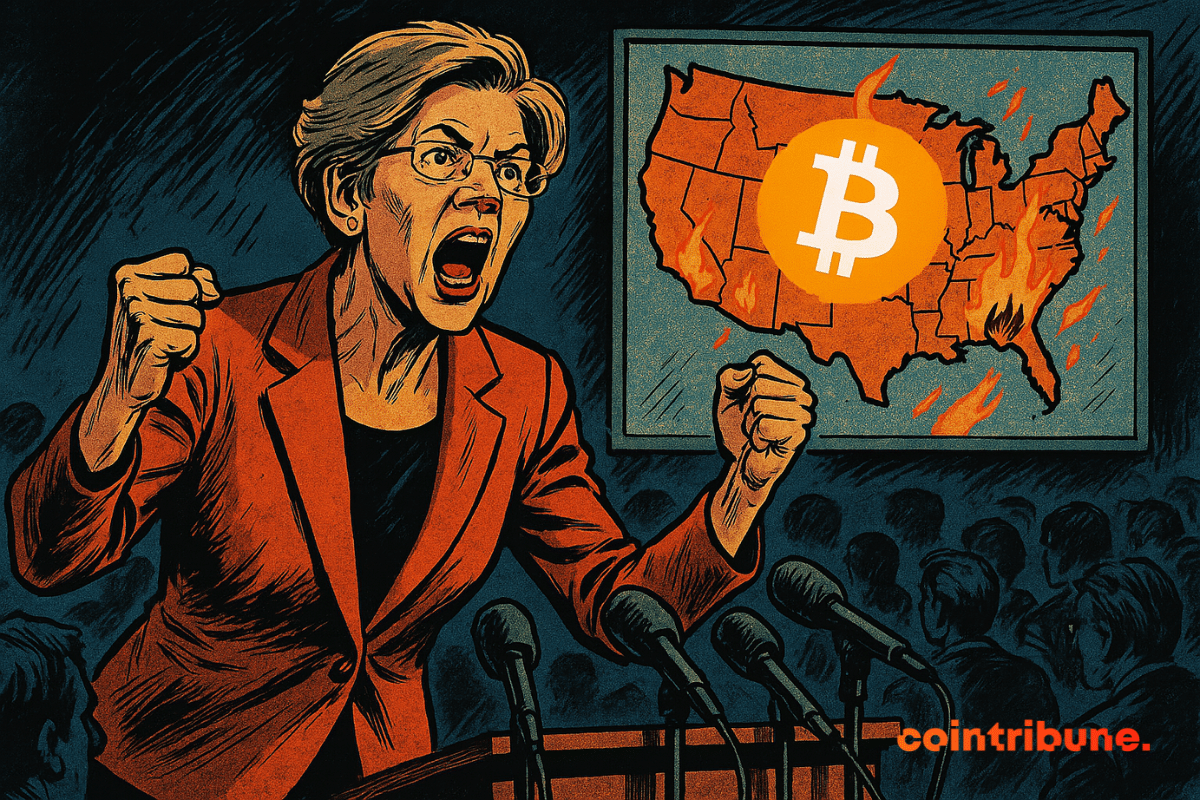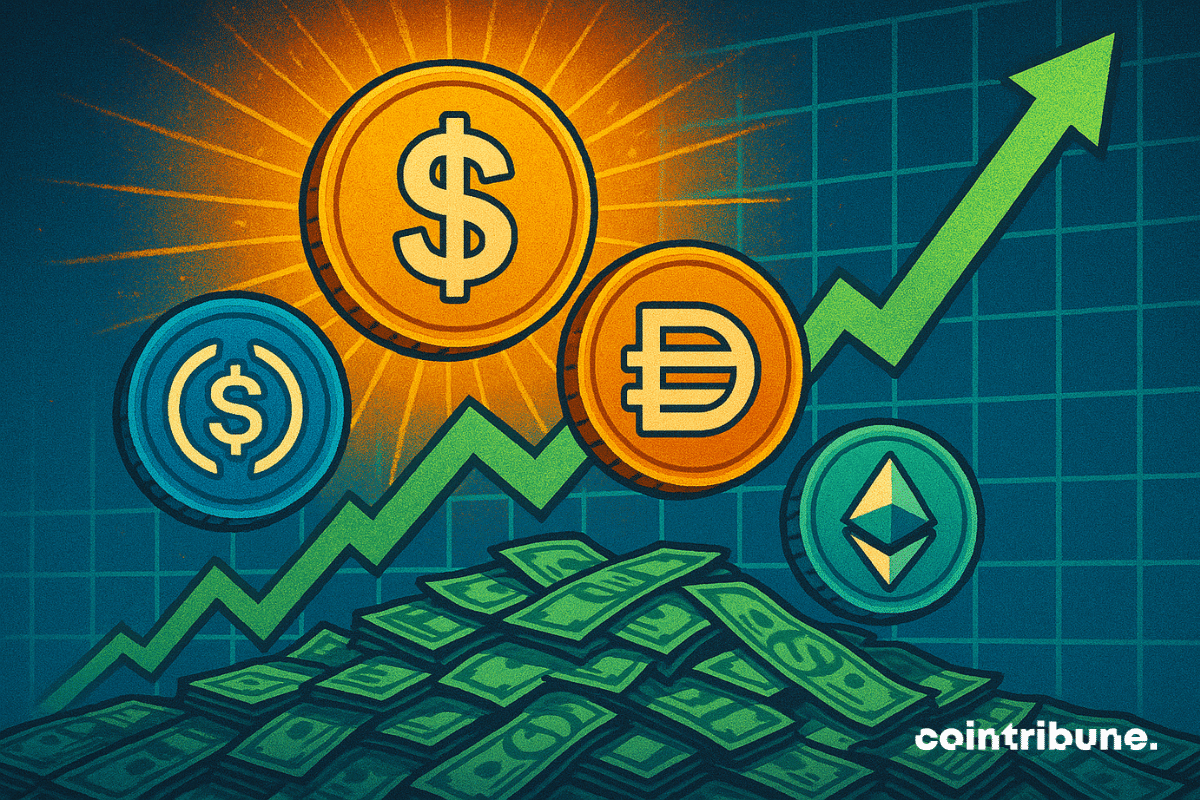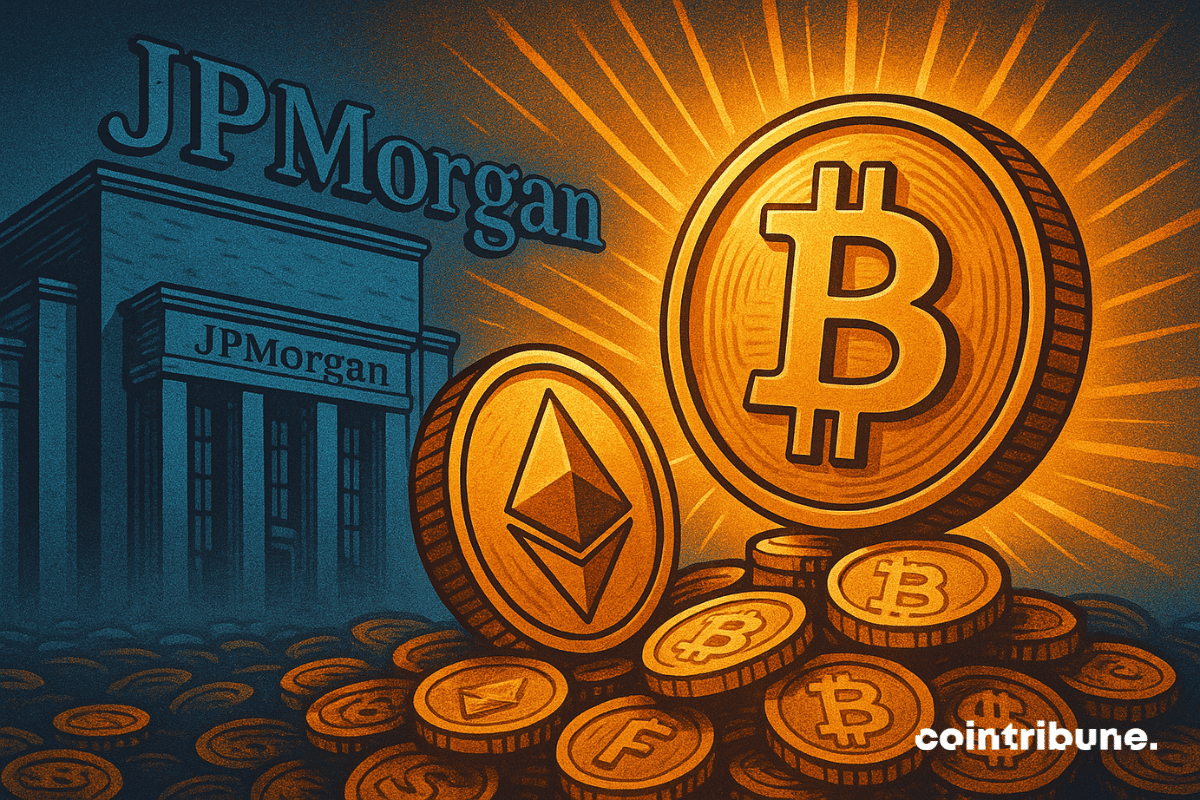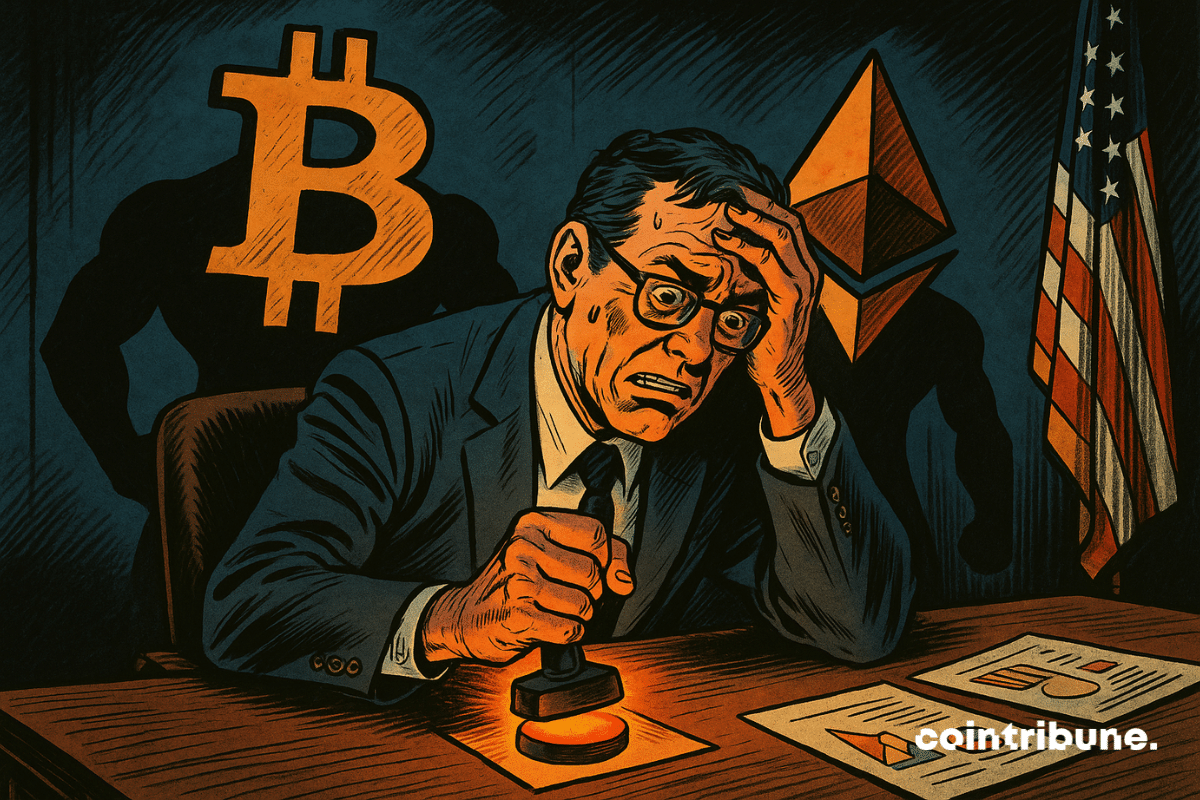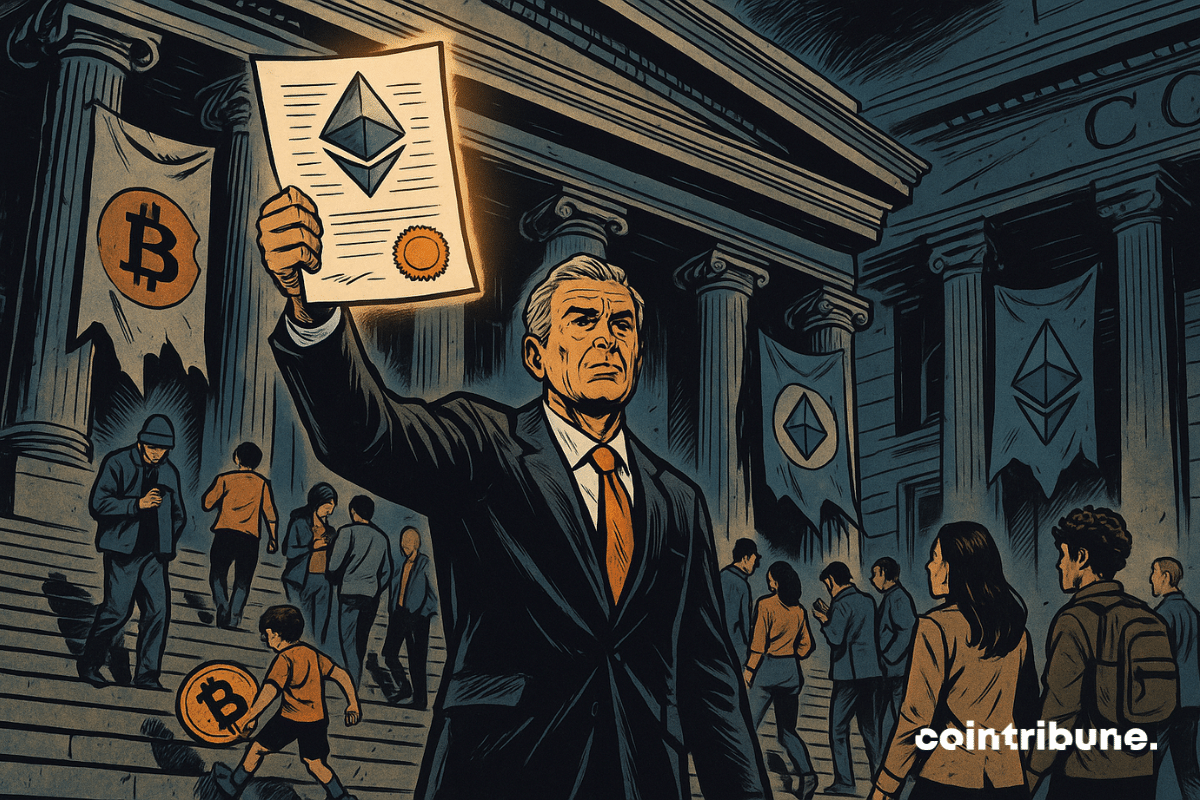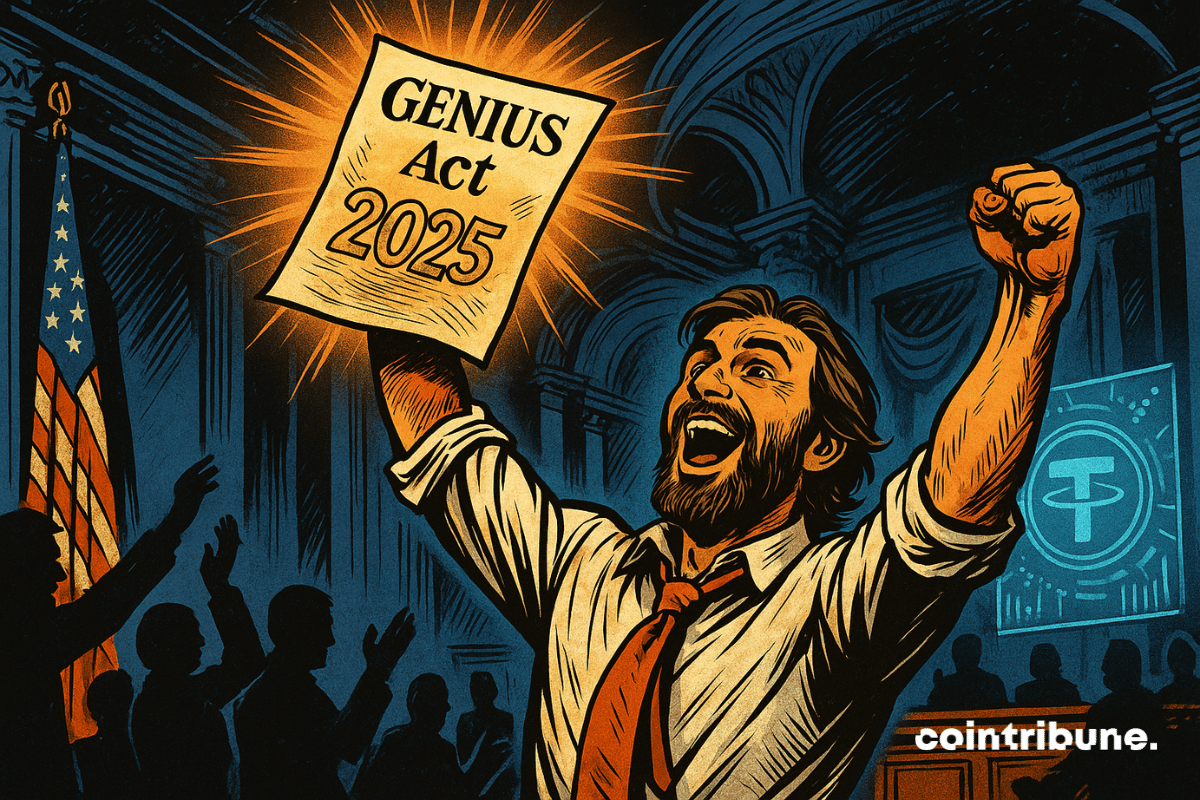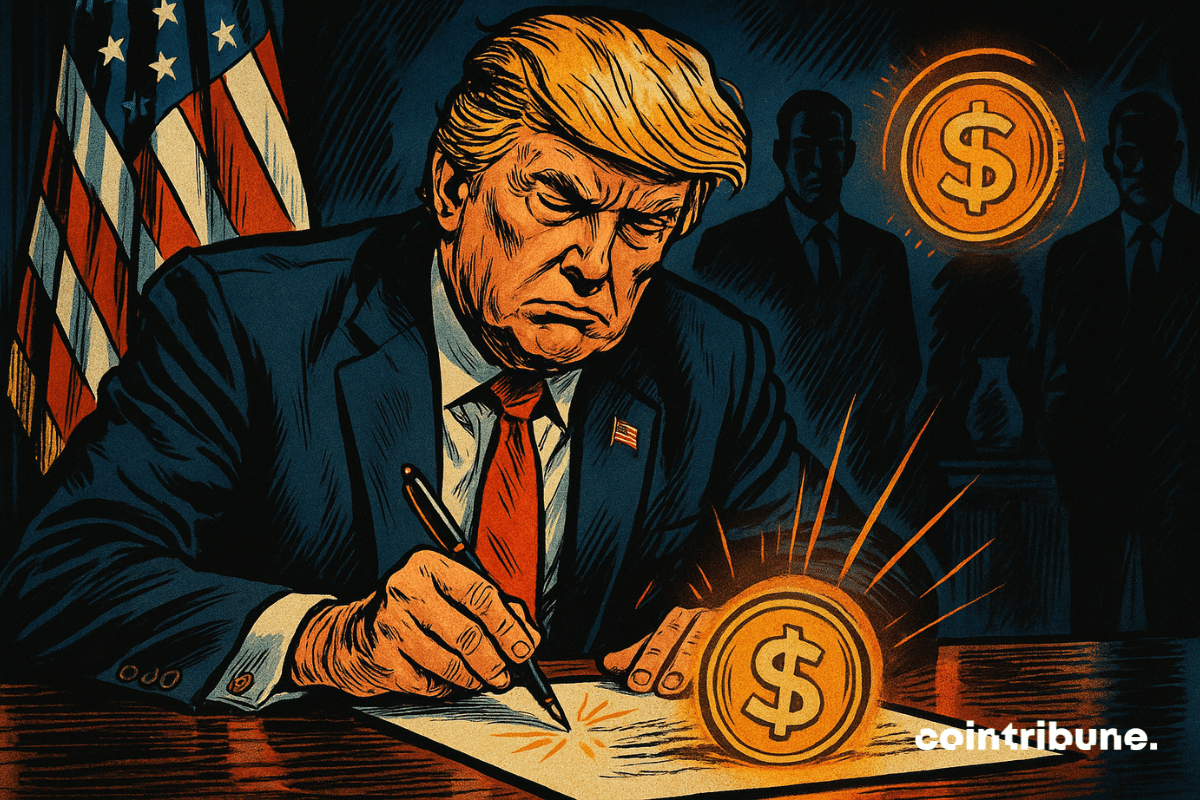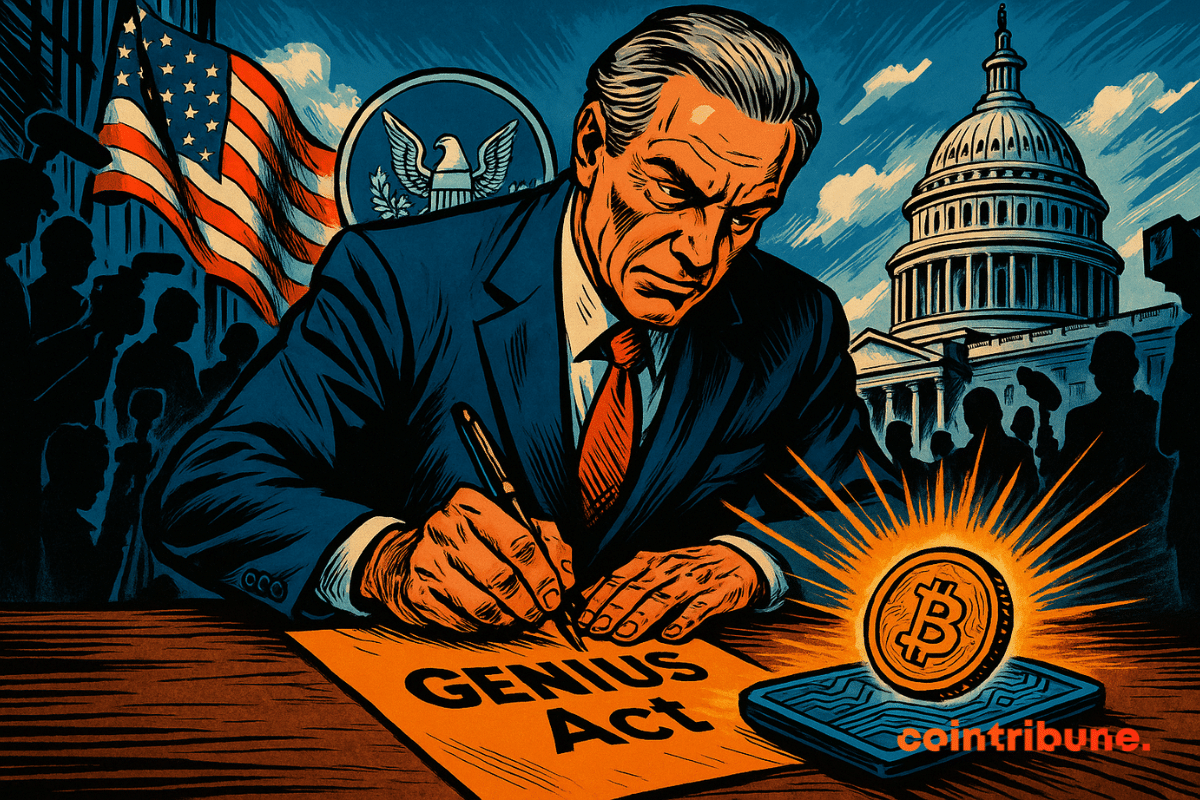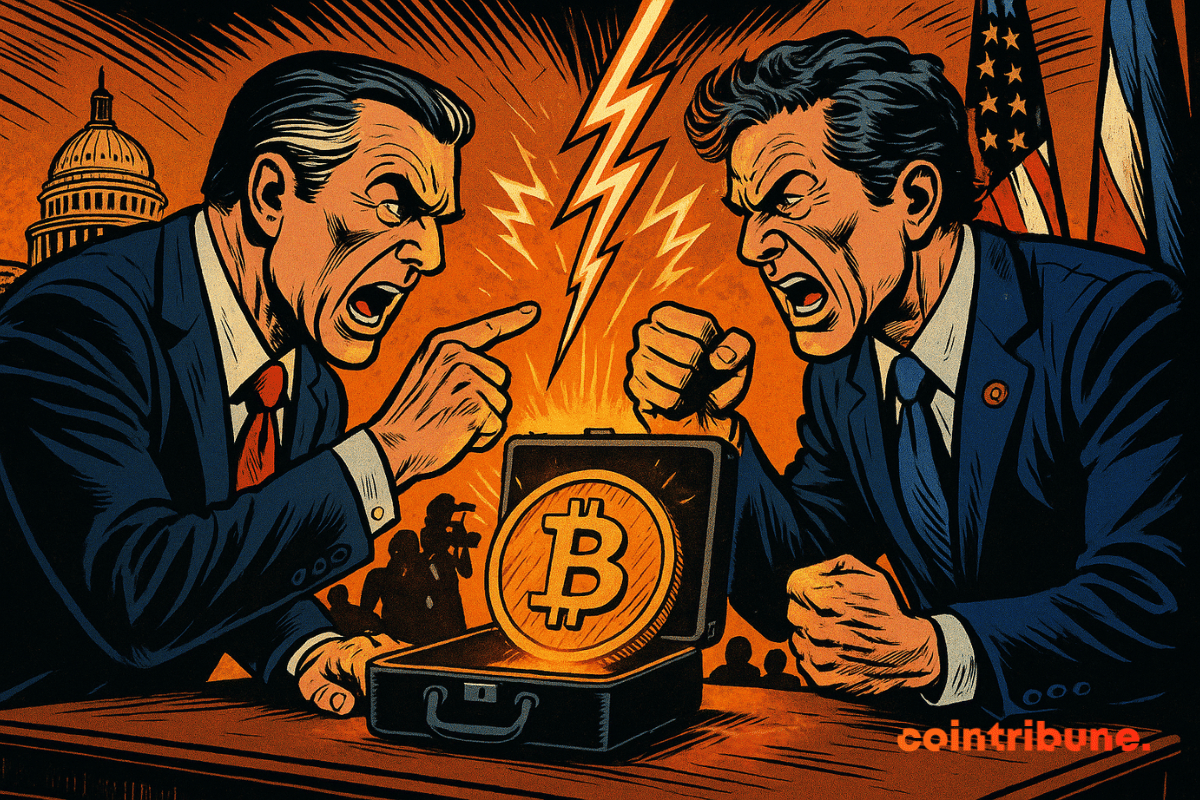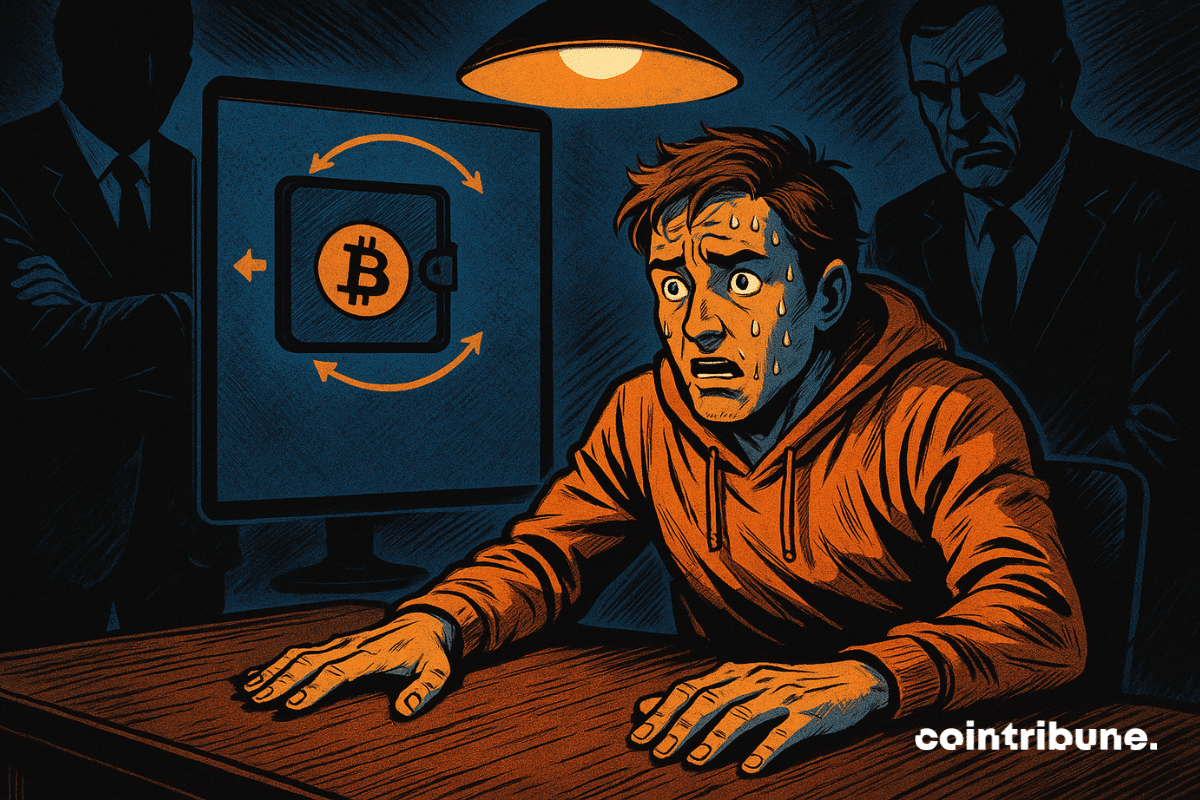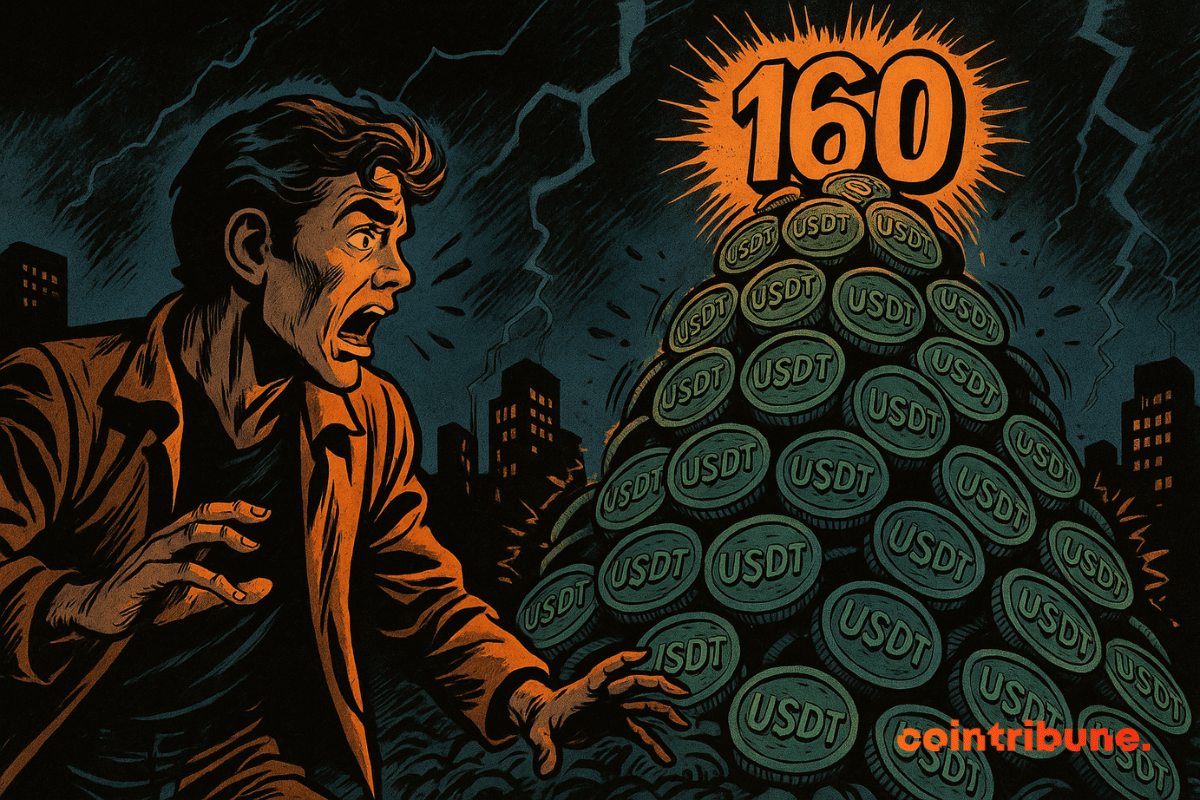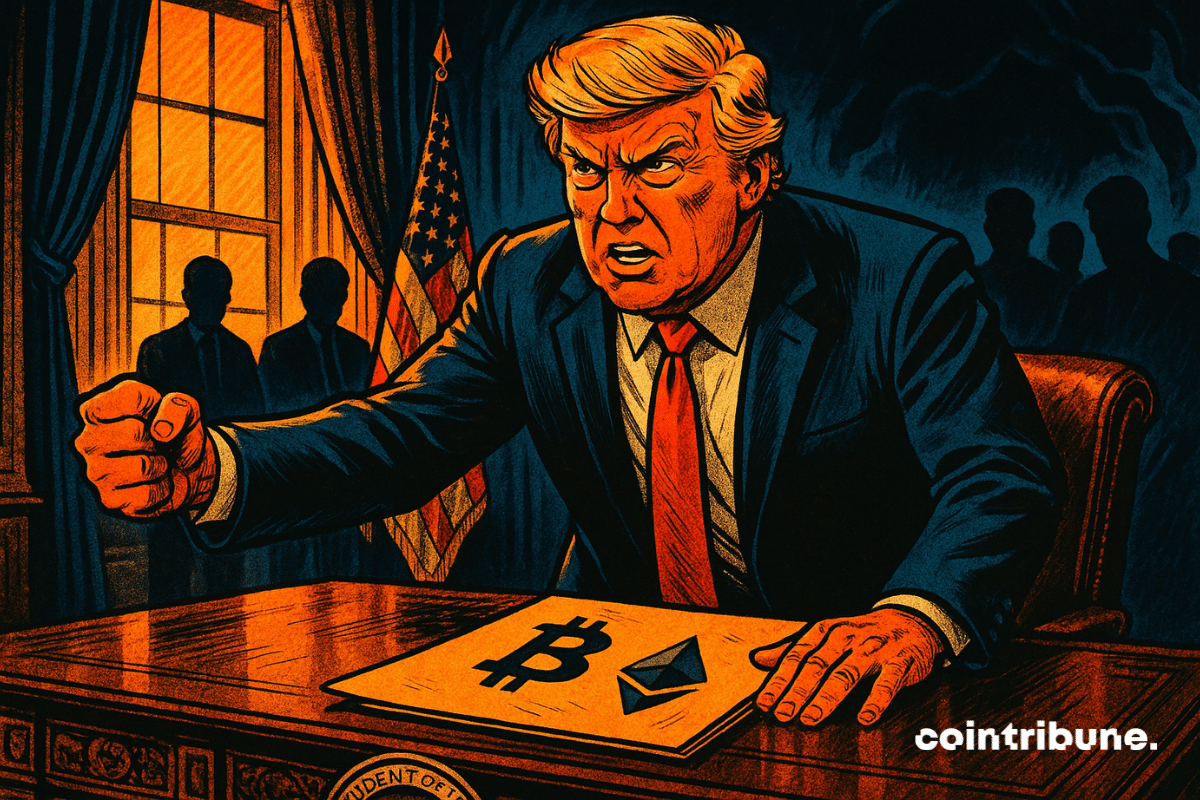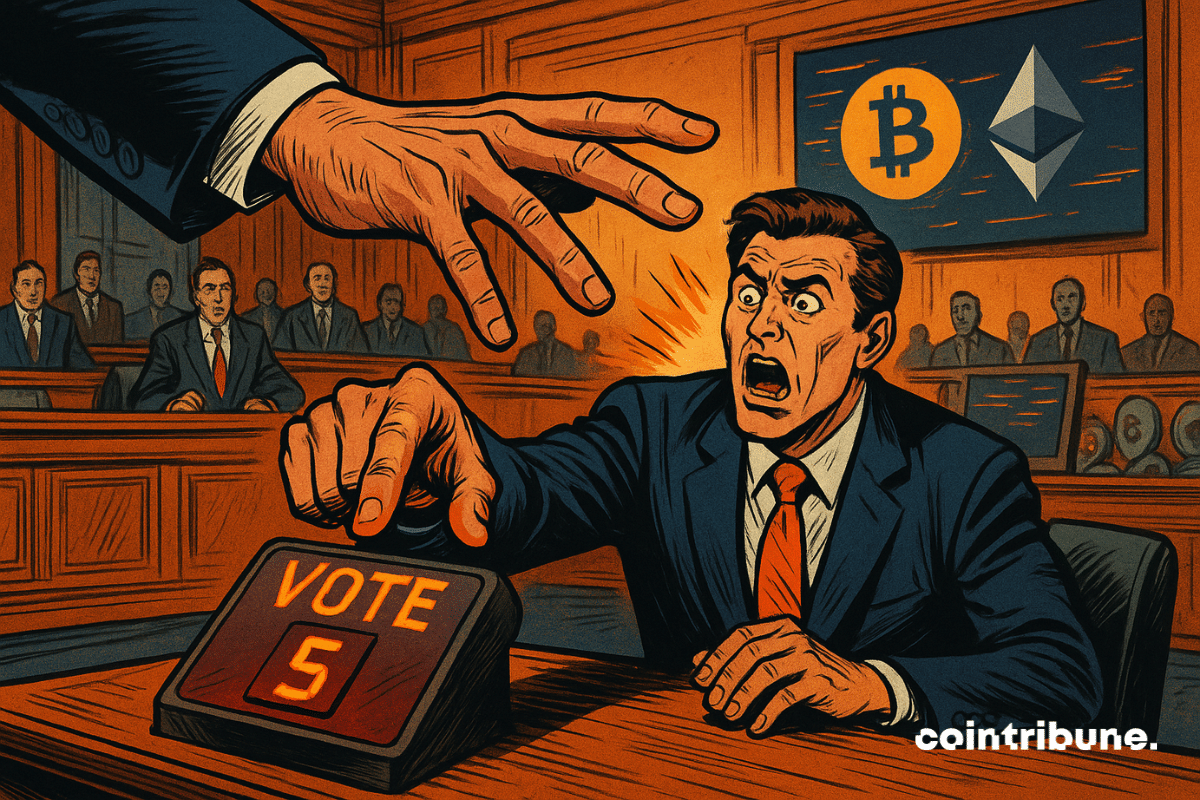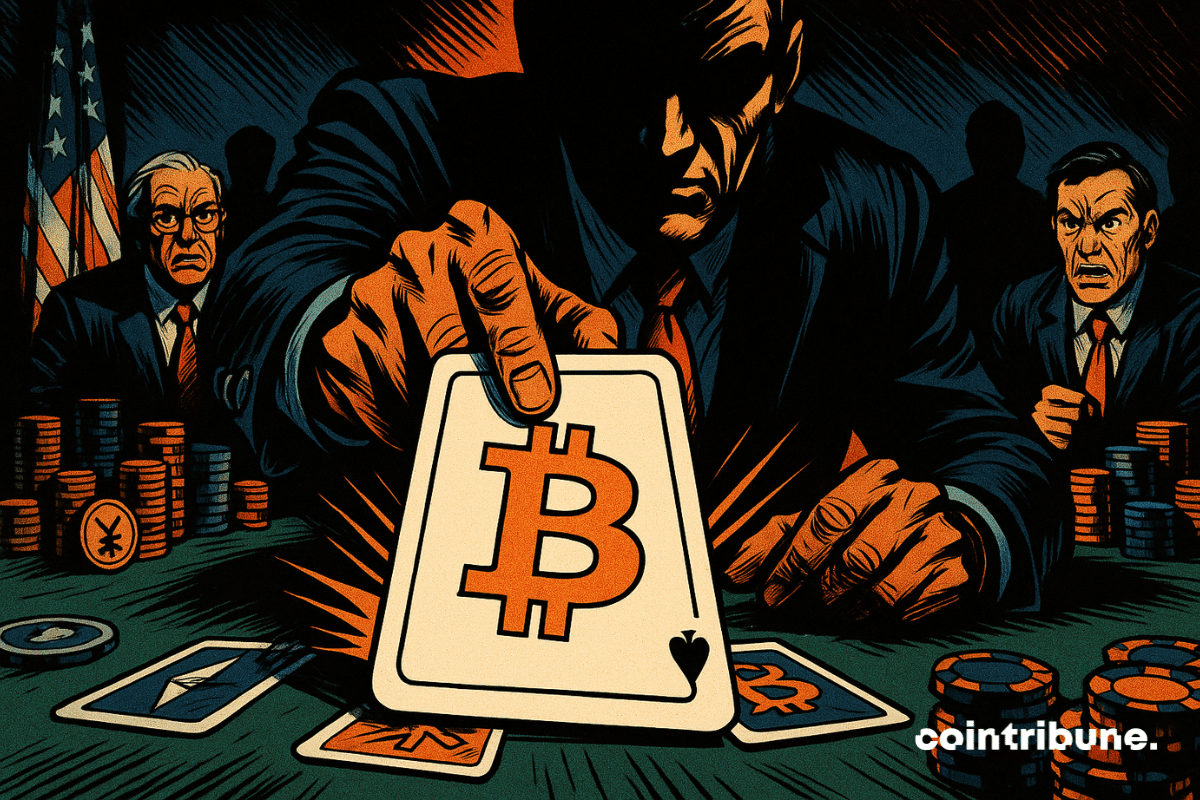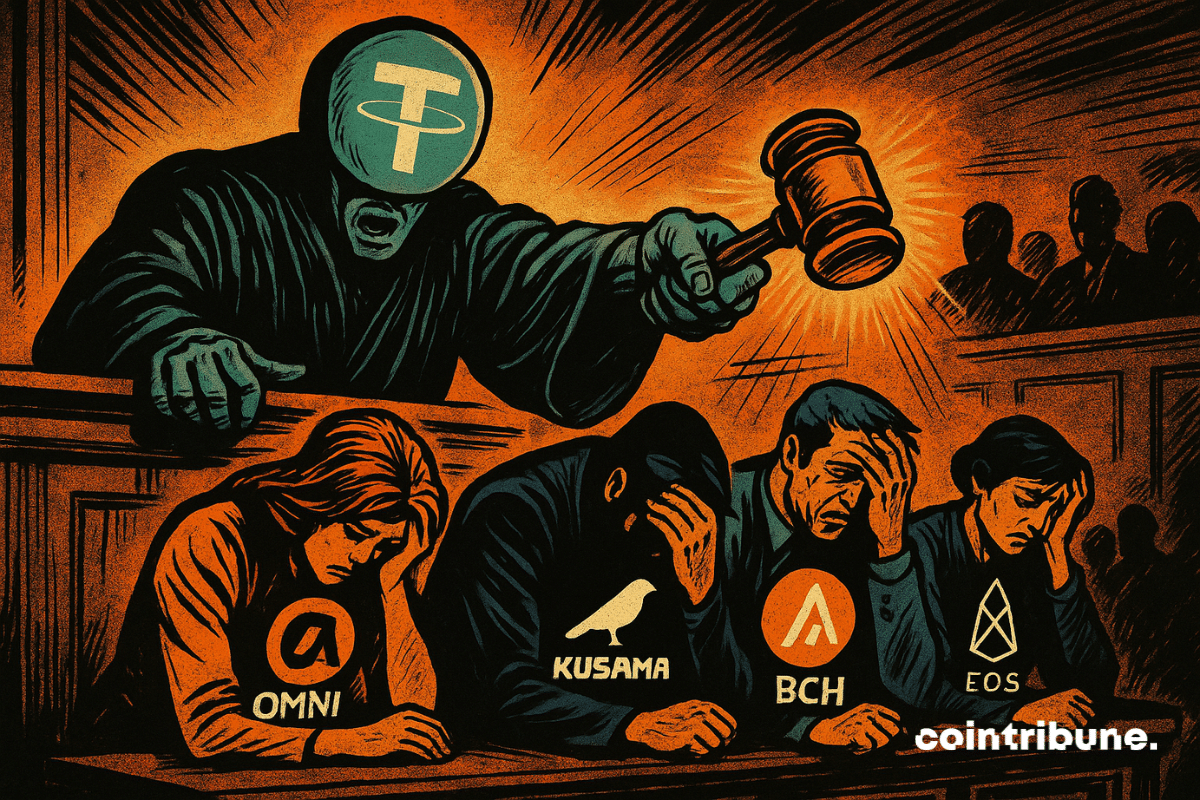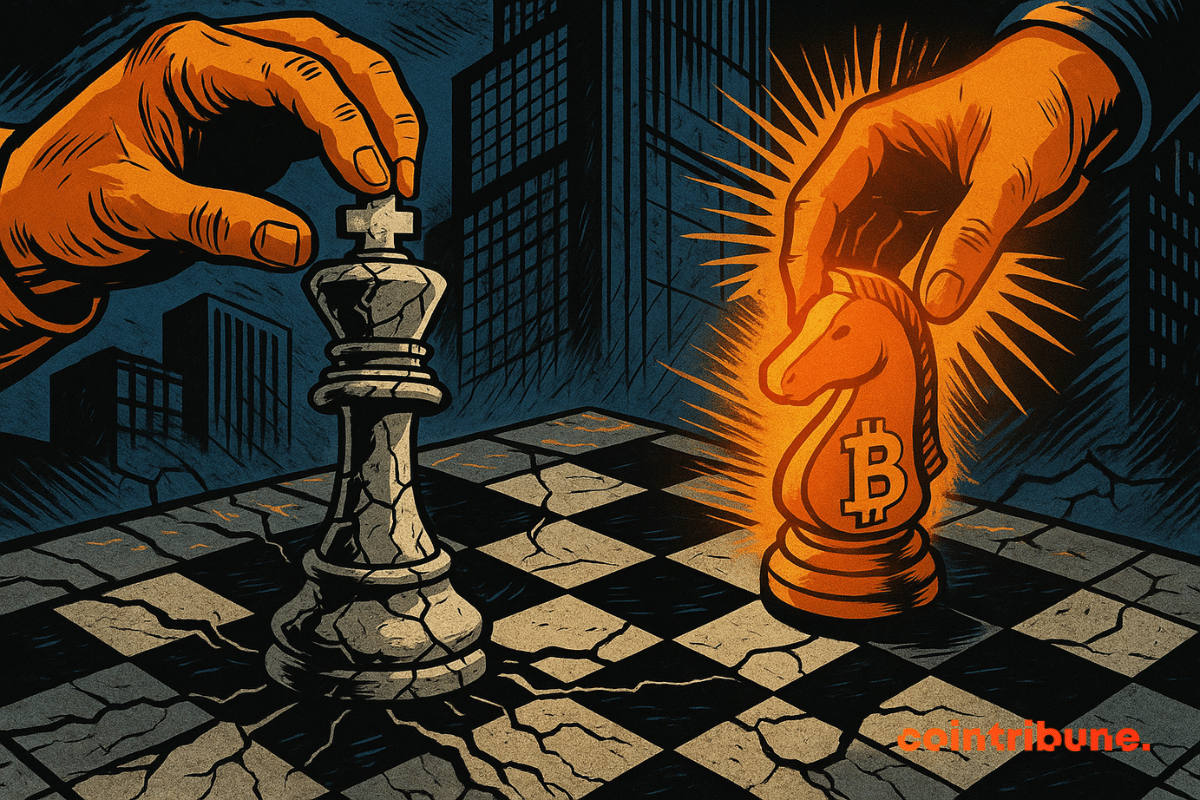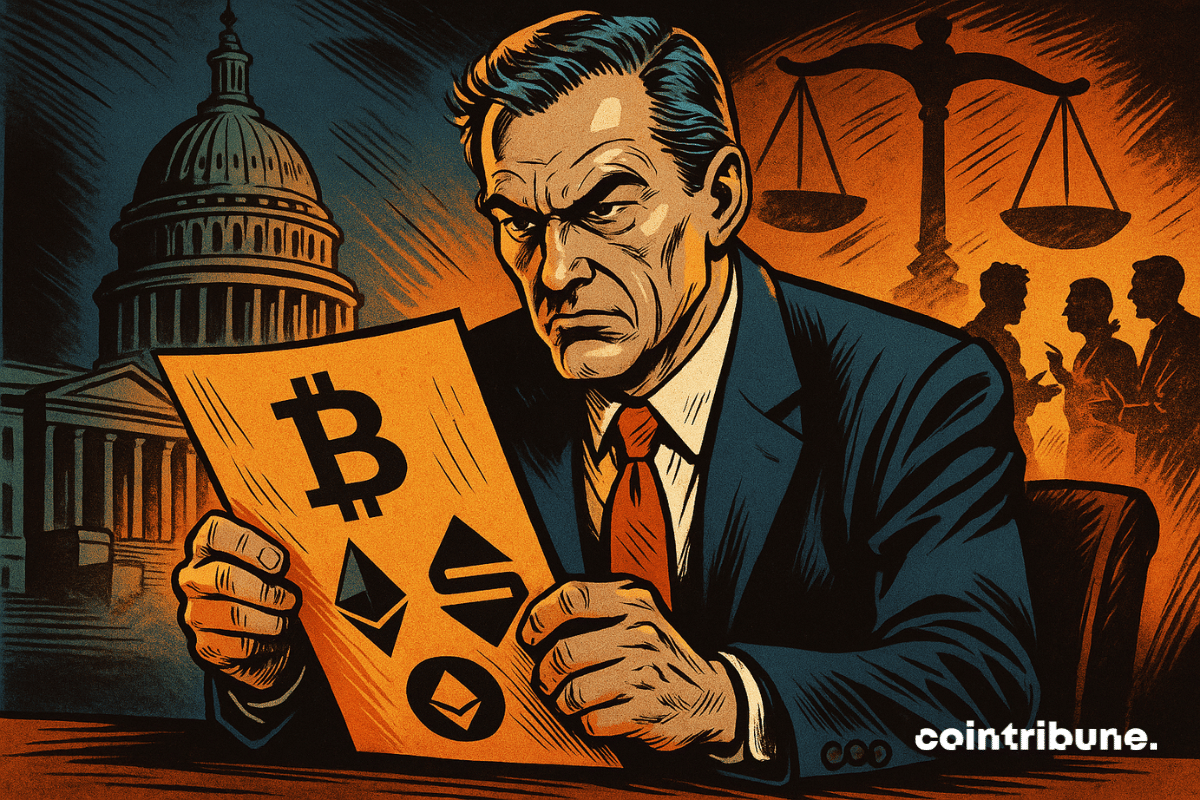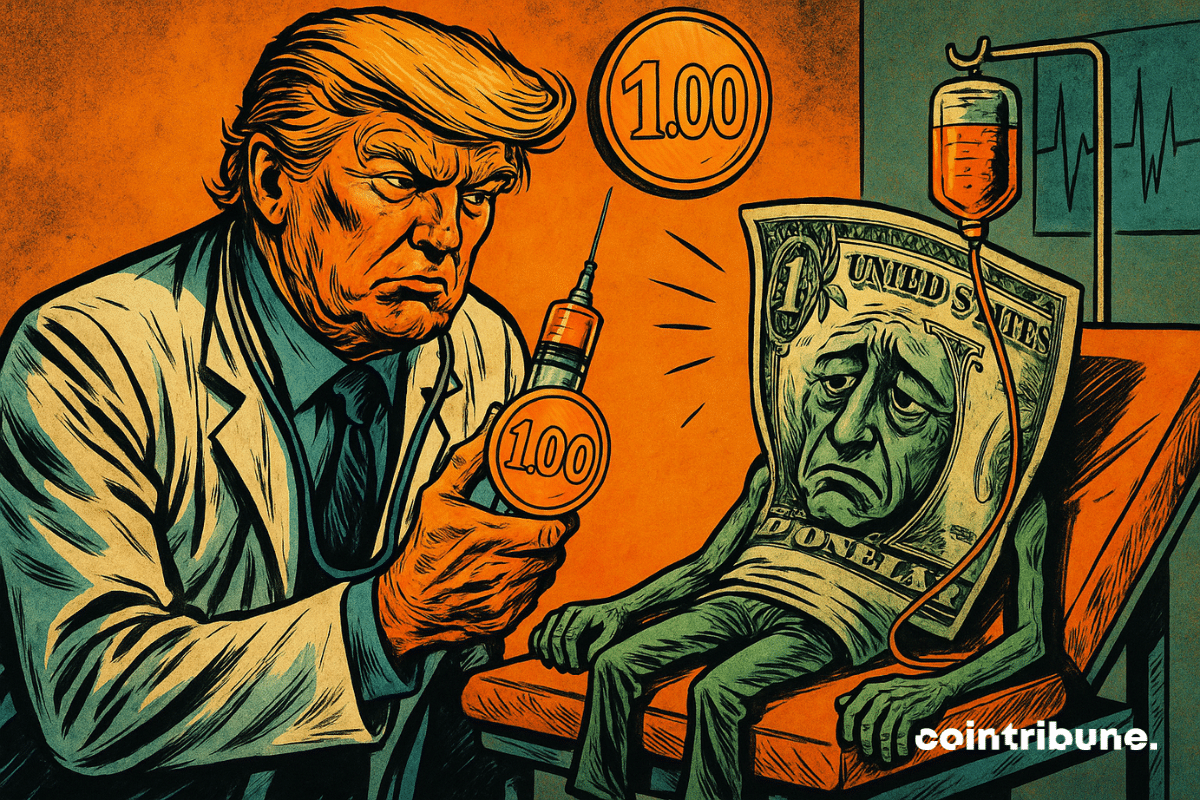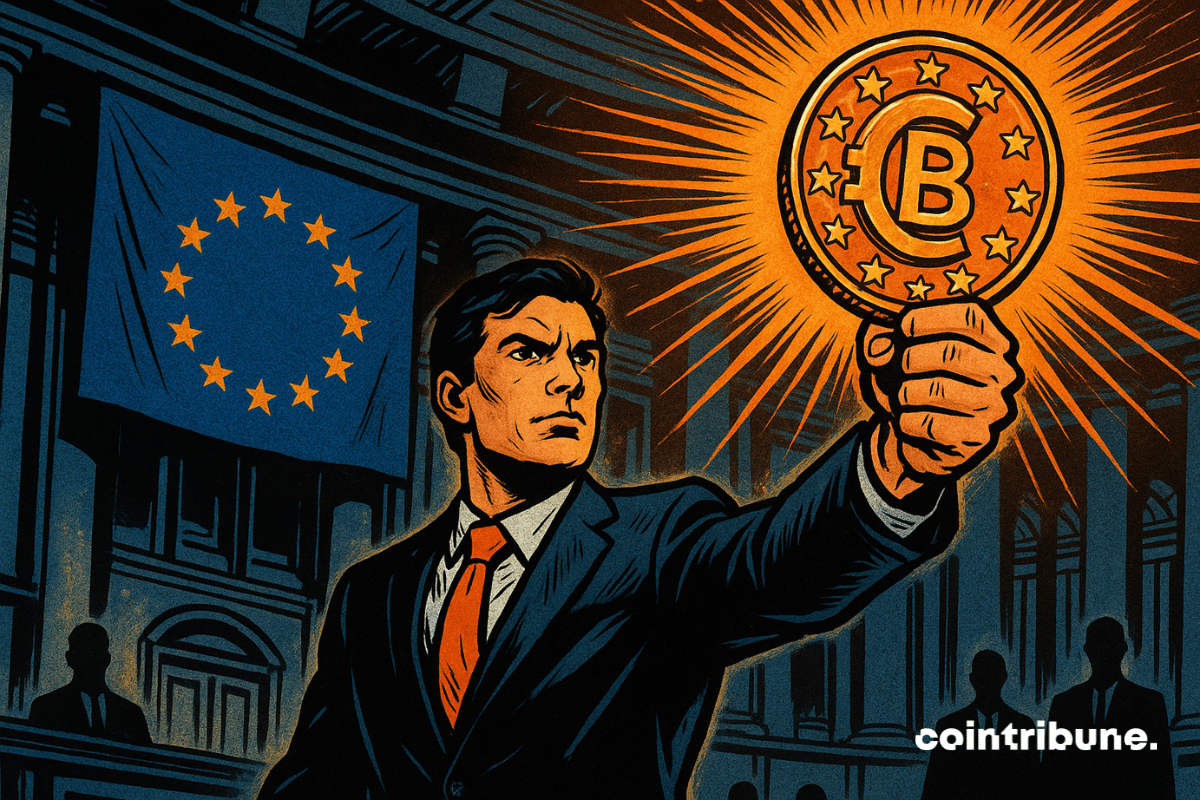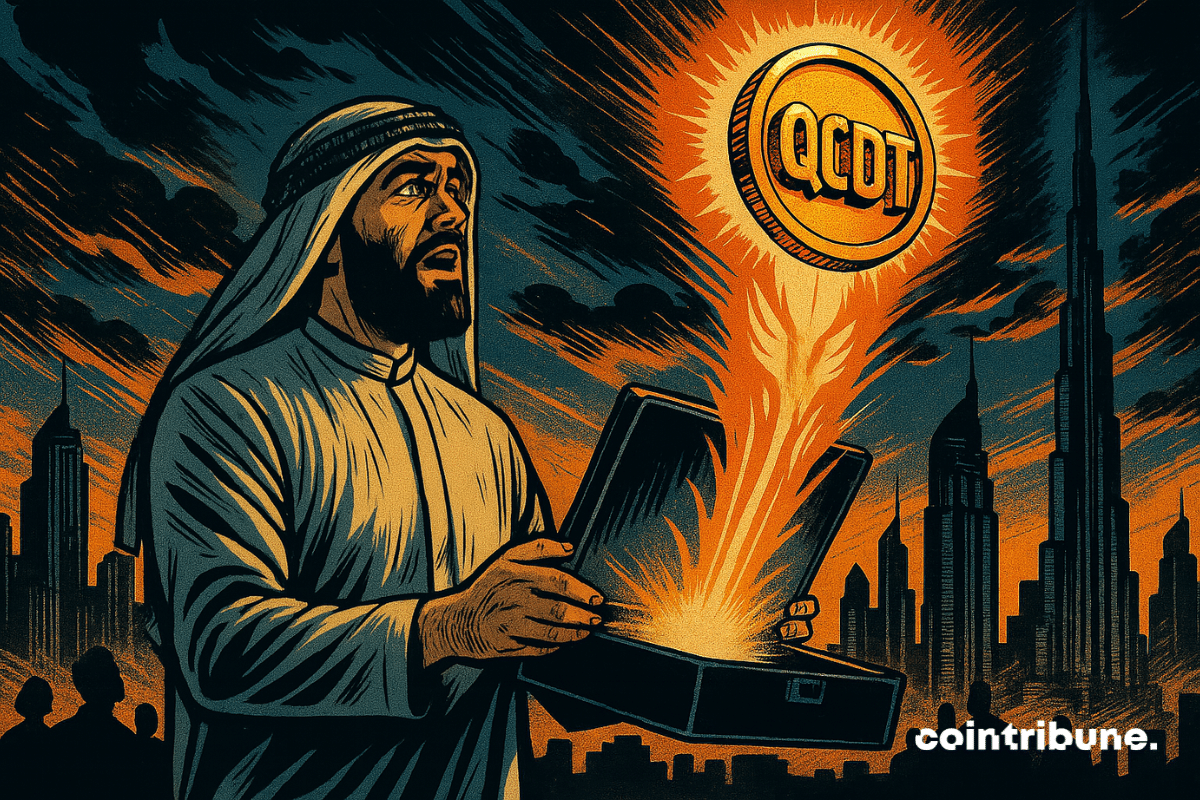Trump wants to launch his Bitcoin ETF via Truth Social, the SEC hesitates, and the Democrats scream: regulation or crypto blessing for a former president who knows how to inflate his tokens?
Theme Crypto regulation
Satoshi’s original vision for Bitcoin was to function as a decentralized peer-to-peer electronic cash system, free from the influence of governments or financial institutions. However, U.S. lawmaker Senator Cynthia Lummis believes that Bitcoin could serve a far greater purpose as a hedge against the rising cost of living.
A federal initiative to incorporate crypto holdings into mortgage applications is facing growing resistance, as lawmakers warn of potential shocks to the housing finance system.
A cowboy state that prints its own currency, a public cryptocurrency backed by the dollar... WYST could well be the test run of a made-in-USA monetary cold war.
When Trump plays the central banker by launching his own crypto, Warren sounds the alarm: regulate, yes. Offer a safe haven for billionaires, no. To be continued under the gilding...
Just one week after the U.S. passed its first comprehensive crypto legislation, the stablecoin market has added over $4 billion in fresh supply entering circulation. The newly signed GENIUS Act is already changing the sector. By providing a federal framework for fiat-backed stablecoins, it gives banks, asset managers, and fintech startups a regulatory greenlight. It allows for new capital, new players, and a clear path forward for tokenized dollars.
JPMorgan Chase is reportedly exploring a new lending product that would allow clients to borrow against their crypto holdings. According to sources cited by the Financial Times, the U.S. banking giant is in internal discussions to launch crypto-collateralized loans, potentially as early as next year. The plan would let clients use cryptocurrencies such as Bitcoin, Ethereum, or even crypto-focused ETFs as collateral in exchange for cash or credit. While still in its exploratory phase, the product would be JPMorgan’s clearest signal yet that it is taking crypto seriously.
The SEC seems finally ready to take a decisive step. Several Bitcoin and Ethereum ETF issuers have just filed modifications to include in-kind redemptions. A key step for these products, which could thus gain in attractiveness and tax efficiency. This long-awaited regulatory breakthrough would radically transform the attractiveness of these financial products.
In a rapidly changing banking sector, Fortuneo is about to reach a decisive turning point. By exploring the integration of cryptocurrencies into its offerings, the French neobank is following a trend already initiated by its European competitors. This strategy is expected at a time when digital investment is becoming a new norm rather than a passing trend.
Latin America facing the crypto challenge: a broken staircase represents the regulatory barriers that hinder the adoption of cryptocurrencies in the region.
A historic milestone has been set in the regulation of cryptocurrencies. At the close of a strategic Crypto Week, the U.S. Congress adopted the GENIUS Act, which was promptly signed by Donald Trump. This federal legislation regulates stablecoins for the first time without categorizing them as financial securities. For a sector long hindered by legal uncertainty, this text marks a clear shift towards the institutionalization of digital assets.
Tether, once allergic to regulation, now bows to Washington. Opportunism? Late awakening? Crypto is opening a highway... but watch out for the toll!
When Trump regulates cryptos and legalizes his own stablecoins, it smells like a full-on electoral strategy. But who will oversee the genius of the GENIUS Act? Not the children, apparently.
After years of uncertainty and tug-of-war between innovation and crypto regulation, the United States finally seems ready to define its course on the burning issue of crypto. On July 17, the Securities and Exchange Commission (SEC) heralded a historic legislative turning point: the passage of the GENIUS Act in the House of Representatives. This ambitious text, now on its way to Donald Trump's desk for enactment, aims to lay the groundwork for clear, proactive, and decidedly future-oriented regulation. Behind the acronyms and well-rehearsed speeches, a message is emerging: crypto is no longer a regulatory anomaly but a strategic lever for the American economy.
In Washington, crypto is taking shape: laws are being passed, Trump rejoices, and the Fed must put away its digital dreams. Regulation is turning into a soap opera with distinctly American twists.
Pakistan and El Salvador are joining forces when it comes to crypto. Bilal Bin Saqib, CEO of the Pakistan Crypto Council, met with El Salvador’s President Nayib Bukele in San Salvador. The goal was to establish closer cooperation on digital assets, as both nations double down on Bitcoin adoption.
Europe is not backing down. After MiCA, crypto companies must face a new wave of regulation driven by the European Anti-Money Laundering Authority (AMLA). Anonymous wallets banned, direct access to data, cross-border controls... Brussels clearly shows its intention to go further. Is the sector ready to absorb this new shock?
Tether is doing well with 160 billion USDT, but beneath the stablecoin surface, audits are glaringly absent... and American senators are sharpening their legislative blades.
Donald Trump has just avoided a major political setback by rallying dissenters from his own camp. Thanks to a direct intervention in the Oval Office, he is back on track for the adoption of the flagship laws of Crypto Week. However, internal tensions regarding central bank digital currencies (CBDCs) hint at a battle that is far from over.
Standard Chartered has taken a major step in crypto by launching a fully regulated spot trading service for Bitcoin and Ethereum, specifically targeting institutional clients. This move makes it the first globally systemically important bank to offer direct access to dollar-paired crypto spot trading, opening the door for corporates, investors, and asset managers to gain exposure to digital assets under the umbrella of a trusted banking institution.
On Tuesday, in a turn as unexpected as it is symbolic, the United States House of Representatives canceled crucial votes on two major cryptocurrency bills. This setback, occurring during the height of "Crypto Week," follows a procedural failure that exposes the deep political divisions surrounding the regulation of digital assets. While attention was focused on the imminent adoption of the "Clarity" and "GENIUS" texts, discussions are now stalled, casting uncertainty on the future of the U.S. crypto framework.
From geek to chosen one, Bitcoin is making its revolution. Wall Street sings its praises, Washington is stocking it up... What if gold had found something shinier than itself, but without the bars?
Tether is taking down its posters of abandoned blockchains to better align with crypto stars: while some lament Omni, others are already celebrating on Ethereum and Tron.
While Wall Street counts its points, Bitcoin takes the prize, ridicules the S&P 500, and shoots at full speed into the coffers of a stunned BlackRock. Who would have believed it?
Crypto is at a crossroads. Under the cold neon lights of the Capitol, the fate of a digital world is being decided with ink and calculations. Starting from July 14, Washington begins its "Crypto Week": a decisive parliamentary sequence where three major bills will be debated. Three texts, three possible directions for the future of digital assets in the United States.
When ETFs fill up like broken pockets and bitcoin breaks through the ceiling, traditional markets wonder: have cryptos become acceptable to the suit-and-tie crowd?
"While the dollar plays the tightrope and Trump brandishes his tariffs, Washington unveils a crypto-crutch: stablecoins, a techno remedy or a digital mirage of a wavering empire?"
Vienna, July 10, 2025 – Today’s press conference marks the formal introduction of Bybit EU to Austrian and European media. With its EU headquarters now operational in Vienna and a full MiCAR license issued by Austria’s Financial Market Authority (FMA), Bybit EU enters the European market…
When Dubai marries traditional finance with tokens, it is not a desert mirage, but a very real… and perfectly regulated fund, please!
Robinhood’s rollout of tokenized shares “linked” to OpenAI set off a large debate last week. A broader discussion in crypto markets about the future of tokenized private equity, and whether retail investors actually want it.
